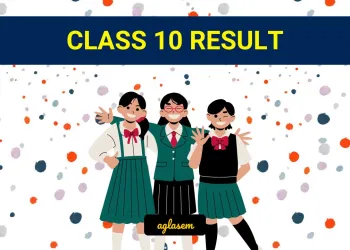Class 10 Social Science Money and Credit – Get here the Notes for Class 10 Money and Credit Candidates who are ambitious to qualify the Class 10 with good score can check this article for Notes. This is possible only when you have the best CBSE Class 10 Social Science study material and a smart preparation plan. To assist you with that, we are here with notes. Hope these notes will helps you understand the important topics and remember the key points for exam point of view. Below we provided the Notes of Class 10 Social Science for topic Money and Credit .
- Class: 10
- Subject: Social Science
- Topic: Money and Credit
- Resource: Notes
CBSE Notes Class 10 Social Science Money and Credit
Candidates who are pursuing in Class 10 are advised to revise the notes from this post. With the help of Notes, candidates can plan their Strategy for particular weaker section of the subject and study hard. So, go ahead and check the Important Notes for Class 10 Social Science Money and Credit from this article.
Barter System : Goods are exchanged without use of money. Double Coincidence of wants : In exchange of goods both parties have to agree to sell and buy each others commodities. In a barter system double coincidence of wants is an essential feature.
Medium of Exchange : Money act as an intermediate in the exchange process. Currency is authorised by the government as medium of exchange.
- People deposit extra cash with the banks by opening the bank account in their name.
- The deposits in the bank accounts can be withdrawn on demand, these deposits are called demand deposits.
- A check is a paper instructing the bank to pay a specific amount from the persons account to the person in whose name the cheque has been made.
Loan Activities of Banks
- Banks in India these days bold about 15% of their deposits as cash.
- Kept as provision to pay the depositors who might come to withdraw money from the bank on any given day.
- Bank use the major portion of the deposits to extend loans.
- Difference between the interest rates is the main source of income for banks.
Terms of Credit
- Interest rate
- Collateral
- Documentation requirement.
- The mode of repayment. the varying terms of credit in different credit arrangements.
Formal Sector Credit in India
Loans from banks and co-operatives Functions of Reserve banks.
- Issues currency notes on behalf of the central government.
- RBI monitors the banks are actually maintaining cash balance.
- RBI collect information from banks, how much they are lending to whom, at what interest rate etc.
Informal Sector Loans
The informal lenders, traders, employers, relatives and friends etc.
- There is no organisation which supervise the credit activities of lenders.
- They can lend at what ever interest rate they choose.
- Their is no one to stop then from using unfair means to get their money back.
Important Questions
1. How does money solve the problem of double coincidence of wants? Explain with an example.
2. What is check? How payments made with cheques? Explain with example.
3. How does RBI control the functioning of other banks? Why it is important
4. Why people take more loan from Informal Sector.
5. Compare the employment conditions prevailing in the organised and unorganised sectors.
6. Explain the objective of implementing the NREGA 2005
Class 10 Key Points, Important Questions & Practice Papers
Hope these notes helped you in your schools exam preparation. Candidates can also check out the Key Points, Important Questions & Practice Papers for various Subjects for Class 10 in both Hindi and English language form the link below.
| Class 10 Maths | कक्षा 10 गणित |
| Class 10 Science | कक्षा 10 विज्ञान |
| Class 10 Social Science | कक्षा 10 सामाजिक विज्ञान |
| Class 10 English |
Class 10 NCERT Solutions
Candidates who are studying in Class 10 can also check Class 10 NCERT Solutions from here. This will help the candidates to know the solutions for all subjects covered in Class 10th. Candidates can click on the subject wise link to get the same. Class 10 Chapter-wise, detailed solutions to the questions of the NCERT textbooks are provided with the objective of helping students compare their answers with the sample answers.
Class 10 Mock Test / Practice
Mock test are the practice test or you can say the blue print of the main exam. Before appearing in the main examination, candidates must try mock test as it helps the students learn from their mistakes. With the help of Class 10 Mock Test / Practice, candidates can also get an idea about the pattern and marking scheme of that examination. For the sake of the candidates we are providing Class 10 Mock Test / Practice links below.
Class 10 Exemplar Questions
Exemplar Questions Class 10 is a very important resource for students preparing for the Examination. Here we have provided Exemplar Problems Solutions along with NCERT Exemplar Problems Class 10. Question from very important topics is covered by Exemplar Questions for Class 10.
CBSE Notes for Class 10 Social Science Maths Notes Science Notes English Notes
To get study material, exam alerts and news, join our Whatsapp Channel.

